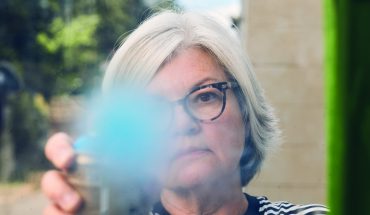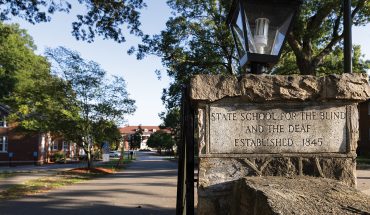by Lewis Beale
photographs by Nick Pironio
When Marco Zárate arrived here from Mexico in 1979 to study for his master’s degree in industrial engineering at N.C. State, he discovered that Hispanic culture in the Triangle was basically nonexistent. No Hispanic markets, no taquerias, no stores selling Mexican soccer T’s. No nothing. Nada.
“You can go to any university in the United States and find someone who will speak your language,” says Zárate, “but once I stepped off the campus, to hear somebody on the street or in the stores speaking Spanish, you didn’t see it.”
Things were so bad that when Zárate would go on break to his hometown of Tampico, a large city on the Gulf of Mexico, his mother would load him up with native goodies to take back to North Carolina. Canned hot peppers, the thick cream sauce known as crema Mexicana, Oaxaca and Manchego cheeses. All things he couldn’t find here then. “Even in the early 2000s,” Zárate says, “we were still bringing in some food items from Mexico.”
That was then. This is now.
This past March, Zárate watched as 800 Hispanic students from around North Carolina crowded into N.C. State’s McKimmon Center to attend the 16th Hispanic Educational Summit. The event was hosted by N.C. State and sponsored by the North Carolina Society of Hispanic Professionals (NCSHP), the group Zárate and his wife Susan, an English as a Second Language teacher in the Wake County Public School System, helped found.
These middle and high school kids were in town to spend a day listening to inspirational speakers, taking workshops on life skills and education planning, and checking out exhibits sponsored by local colleges and universities, the Raleigh Police Department, and businesses like PNC Bank and Univision 40, the local Spanish-language TV channel.
“We are a professional organization,” says Zárate of the NCSHP, which boasts nearly 650 members and 1,000 volunteers, “and although most professional organizations focus on the professional development of their members, in our case the education of young people is the main focus. The society has become a kind of platform for people who want to help these kids succeed.”
Zárate comes from a solidly middle-class Mexican family. His father worked as an accountant for Petróleos Mexicanos (Pemex), the state-run oil company, and his mother founded a secretarial school that morphed into a middle school. The parents also were heavily involved with the Lion’s Club, helping Tampico’s disadvantaged population. After graduating from N.C. State, Zárate returned to Mexico, where he worked for Pemex as an environmental engineer.
Back to the Tar Heel state
But North Carolina called him back, and in 1991 Zárate returned to the Tar Heel State for good. He found a job with a large consulting company working on environmental compliance regulations across a broad range of industries.
Soon enough, Zárate settled down to a comfortable American middle-class life, raising two children – Christian, now in the U.S. Army, and Caroline, a nurse – and relaxing in his spare time by landscaping his property, hitting the beach, and playing tennis. Around the turn of the century, however, he began to notice a significant change in North Carolina demographics.
It turned out that the growth spurt in the state’s population had also attracted a lot of Hispanic immigrants – the majority of them Mexican – who gravitated towards the agricultural and construction industries.
The Hispanic population of Raleigh has grown by over 138% since the beginning of the millennium, and now makes up over 11% of the city’s overall population. Hispanic restaurants, markets, bakeries, and other commercial outlets are now ubiquitous around the state. There are Spanish-language TV stations, newspapers, and magazines. Spanish-language films play on a regular basis in the theaters. Hispanics now account for nearly 9% of the state’s population, 13% of all K-12 school enrollment, and 15% of school kids in Wake County.
This huge influx put a lot of pressure on all sorts of organizations, not least the state’s educational institutions. Most school districts were unprepared to deal with an immigrant population that spoke another language, suffered cultural isolation, and had less parental involvement in the educational process as a result. The fallout was bad enough that in 1999, nearly half of all Hispanic students were dropping out of high school.
“I started thinking: What can I do in education?” Zárate says. “And what I was seeing, was that the people in the schools, what they were thinking was that eventually (the Hispanic immigrants) would go back” to their home countries. “But what we started seeing was that they didn’t go back. Initially there were a lot of men working without their families, but we started seeing that their families would come up. And the thought was if we don’t focus on the children, we are not going to have the professionals that we want for our state. We’re not going to have the skilled people we need to help our state progress.”
Investing in the future
So Zárate, his wife, and two other couples founded the NCSHP. Their goal was to bring together Hispanic professionals who could mentor local students, and help them along on the road to success. “We offer guidance and consulting to parents about the education of their children,” Zárate says. “We also inform them about educational resources – how to navigate the school system, things like that.”
“Marco wants to give high school students all the knowledge he has,” says Rosa Rangel, a member of the NCSHP board and the senior administrator for family and community engagement in the Wake County school system. “He tells them you can still have fun and be a teenager, but still go to school. I think they look up to him as a grandfather, they think of him as el abuelo (the grandfather), they listen more when they see him. He has that respect.”
Since its founding, Zárate’s organization has helped over 11,000 Hispanic students through its summits, mentors, and tutors, and has awarded nearly $250,000 in scholarships to 170 college attendees. The NCSHP has a yearly “Stay In School” campaign that raises awareness through Hispanic media, and a bilingual “¡Gradúate!” program that targets high school students. It’s a broad-based educational initiative with a big focus on mentoring.
Yessica Vazquez, a Nicaraguan native who attended high school in North Carolina before the NCSHP was established, now heads the group’s Triad chapter. She knows what it was like for a kid with aspirations before the NCSHP came along. “Being an immigrant myself, and my parents, it was hard for them to navigate the schools,” she says. “There is a knowledge about going to college that people who have gone to college, they know what the requirements are. When I talked to my teachers and guidance counselors, they only came to me with assumptions, that there were things I should know.” The NCSHP is “giving these tools to parents and students.”
Juan Fuentes, who grew up in Johnson County, can attest to this. He vividly remembers going to his first summit, and what it meant for him. “I was excited going to my first summit,” he says, “seeing successful mentors that shared similar traditions, culture, and language made me realize that I can be victorious. The motivational effect of the summit is they bring in other success stories. The overall message NCSHP provides to students is to overcome barriers.”
Fuentes, who had been interested in journalism, was encouraged by meeting Pamela Silvia Conde, an award-winning journalist for the Spanish-language Univision Network at the summit. He subsequently majored in communications, got a job when he graduated with the Spanish-language newspaper La Conexión, and now works in marketing for Oxford University Press. “It’s important to see a Hispanic person become successful,” he says, “so you can do the same thing.”
Marco Zárate can look at his work and see that it is good. But he also emphasizes that despite current controversies over national immigration policy, the NCSHP is about education and nothing else. Sure, the group supports in-state tuition for undocumented students, and is part of the Adelante (“forward” in Spanish) Coalition, a nonprofit fighting for tuition equality for Latino students. And the NCSHP is also in favor of the DREAM Act, which would provide permanent residency to immigrants who serve in the military or attend college.
But ask Zárate to comment on other issues involving immigration and the undocumented, and he becomes visibly uncomfortable, saying only that he hopes the federal government can put together “a comprehensive immigration package.” He doesn’t go into specifics. “This happened a lot when we started, he says. “We were supposed to be an expert on everything, but we decided we just want to talk about education.”
And things are certainly looking up. Thanks to increasing cultural awareness on the part of local school systems and the work of groups like the NCSHP, the Hispanic graduation rate in North Carolina is now over 75%, a significant increase in 15 years. It makes Marco Zárate plenty proud to think of all the future wage earners and professionals his group has mentored.
“We believe an investment in Hispanic education is an investment in North Carolina,” he says. “We have professional people who believe in productivity, in a skilled workforce. And all those things are going to be better for everybody.”





